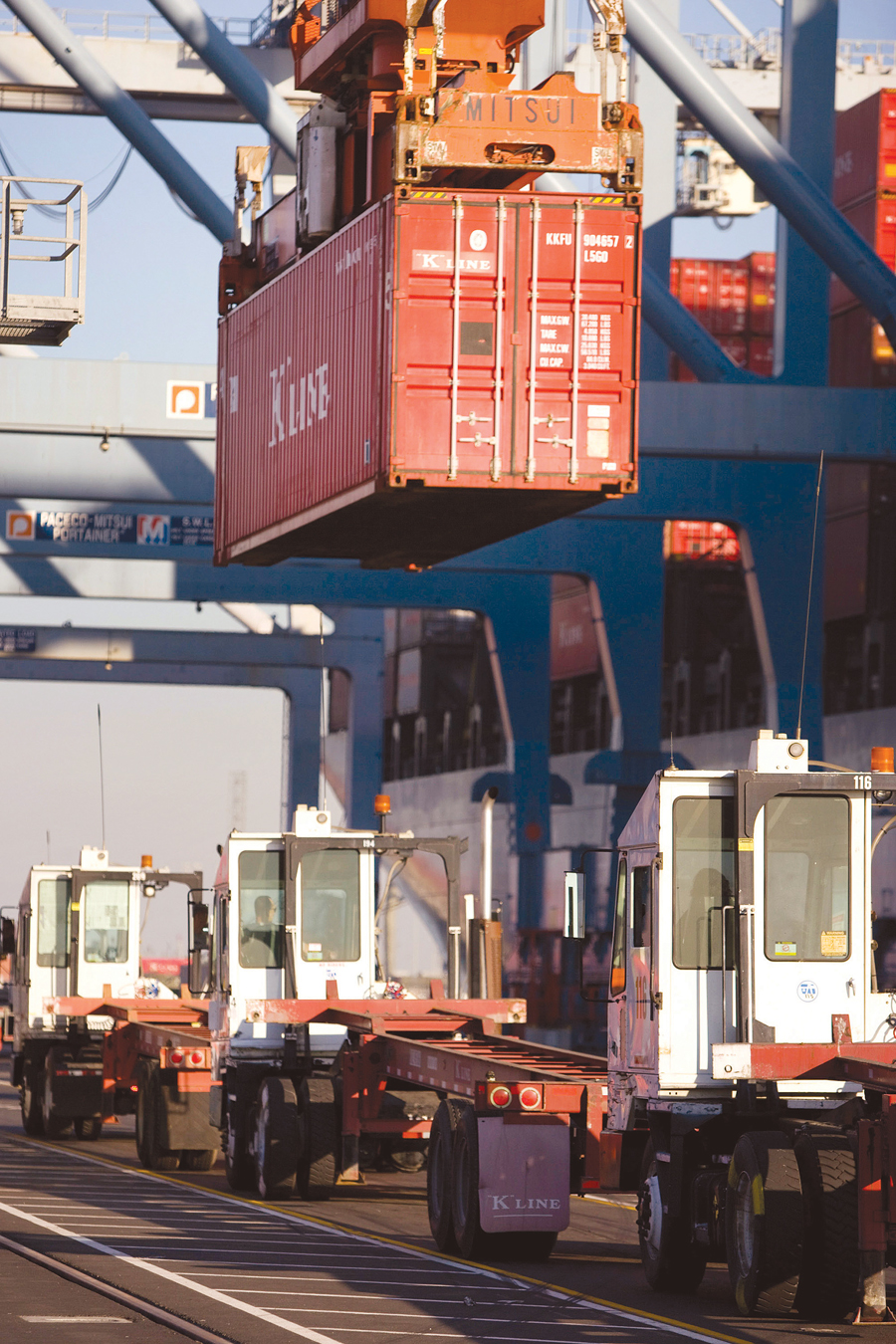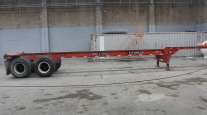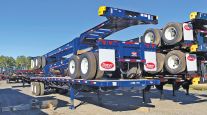Three Large Chassis Owners Begin Pool in Southern California to Tackle Shortage
 Port of Long Beach
Port of Long BeachThis story appears in the March 9 print edition of Transport Topics.
Three of the largest intermodal chassis owners announced the startup of a pool in Southern California that is meant to address ongoing difficulties with equipment supply at the Ports of Los Angeles and Long Beach, California.
The announcement from Direct ChassisLink Inc., Flexi-Van Leasing Inc. and TRAC Intermodal said the chassis provisioning model, colloquially known as a “pool of pools,” began operations March 1 at 11 of the largest cargo terminals.
The new approach is designed for truckers to use equipment from any of the pools, instead of having to find or wait for a chassis from one of the individual pool operators or an ocean carrier.
“Interoperability of chassis across the terminal complex should reduce time spent in travel to pick up or return chassis, improving motor carrier productivity,” the group’s statement said.
Pool operations are beginning at a time when truckers and other transport operators are trying to clear the extensive cargo backlog of as many as 500,000 containers. The backlog accumulated during a slowdown just before the Pacific Maritime Association and the International Longshore and Warehouse Union announced a tentative contract agreement on Feb. 20.
Chassis supply has been a chronic headache in the port complex, according to truckers who since last summer have told Transport Topics about multiple problems related to that equipment. Shortages were created by the arrival of larger ships and were compounded in recent months as a lack of space inside the ports made it impossible to return the chassis before additional fees were charged.
The chassis situation has prompted the Harbor Trucking Association in Southern California, the California Trucking Association and the Intermodal Motor Carriers Conference to press for changes.
Among the steps that have been contemplated are exemptions from hours-of-service rules and changes to intra-industry dispute-resolution procedures, say industry officials such as Curtis Whalen, who heads the IMCC.
“This is a historic agreement that will help our ports overcome a major challenge that has played a significant role in the congestion we’ve experienced,” Port of Long Beach Chief Executive Jon Slangerup said in a joint statement issued with Los Angeles port leadership.
Gene Seroka, Slangerup’s L.A. counterpart, described the new offering as “a major step forward in addressing the congestion issues that have challenged the San Pedro Bay cargo flow in recent months.”
The pools being combined include one managed by Direct ChassisLink and Flexi-Van, known as the DCL Pool, as well as others known as the Grand Alliance Chassis Pool and the Los Angeles Basin Pool.
Six months ago, the Justice Department cleared the way for the “pool of pools” to be created, which includes about 80% of the chassis in use at the port. Since then, the participants have worked out the details of the pool’s operation, which includes more than 80,000 units.
A chassis pool is being developed at the Port of New York and New Jersey to try to offset congestion issues. Several pools are already operating there.
The pool of pools announcement was made Feb. 27, breaking weeks of silence from the participants and the ports about the new offering that was supposed to start Feb. 1.
While chassis use is being pooled, each of the companies providing the equipment will set their own rates and usage terms, according to the lessors’ statement. Pool operators have arranged for IAS, an independent party, to audit the use of equipment and compensation.
The joint announcement will aid marine terminals by improving utilization and reducing congestion. The public also will benefit through fewer emissions, the companies’ statement said.
The two ports have also received Federal Maritime Commission approval to explore steps to improve cooperation in operations, security and other activities.




